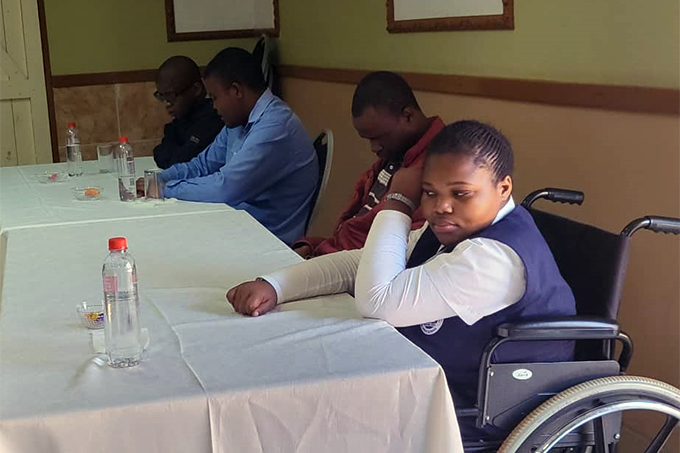In Eswatini, the Ministry of Education and Training is working hand in hand with civil society to coordinate the sector policy dialogue
Eswatini became a GPE partner last year, after the country finalized its Education Sector Strategic Plan and Multi-Year Action Plan. Civil society organizations played a key role in preparing the planning documents by actively participating in the process.
Civil society contributed to the education policy dialogue since 2019, when EOL-partner Swaziland Network Campaign for Education for All (SWANCEFA), became the coordinating agency for the first local education group in the country. SWANCEFA is the first national civil society organization to assume the role of coordinating agency in a GPE partner country.
All education stakeholders come together
A local education group gathers CSOs, development partners, NGOs, parents, youth, students, teachers, philanthropy and the private and business sector as a forum for dialogue and assistance for the education sector; it is a pillar of GPE’s operating model in the country.
Eswatini’s partnership with GPE has seen all stakeholders coming together to have a voice in the country’s education affairs. For a small country like Eswatini, with a dwindling economy, this has come at an opportune time as all stakeholders need to pool their resources in support of education for all children.
Eswatini’s local education group uses a sector-wide approach to inform planning, budgeting, monitoring and evaluation. This approach helps to provide assistance that emphasizes strengthening national ownership and building a nationally-managed system in education.
The group discusses all matters that touch upon and promote education for sustainable development. The Ministry of Education and Training, together with SWANCEFA, coordinate to prepare the group meetings’ agendas and convene members to join the meetings.
Using this coordination approach led Eswatini to receive a GPE grant of US$500,000 to develop the education sector strategy. This strategy helped in seeking funding from external partners as the local economy cannot support many of the programs included in the strategy.
Ensuring all voices are heard
SWANCEFA works to ensure that ordinary citizens participate in the development of education policies, implementation and monitoring.
Civil society organizations represent ordinary people down from communities up to the national level. They carry the mandate and voices of ordinary people that must be heard in those critical discussions about education policies.
SWANCEFA’s goal is to empower them and provide that platform for them to be heard.
Parents had not been included in education sector processes for a long time and yet they are key stakeholders in the education of their children.
SWANCEFA has been helping parents in diverse communities increase their capacities through one of its member organizations, the Eswatini Schools Committee and Parents Association (ESCAPA), and is now able to incorporate the voices of those parents into local education group meetings.
GPE’s support to SWANCEFA since 2016 through Education Out Loud has enabled progress towards quality education for all: the environment for dialogue is now conducive to the participation of all Eswatini citizens, who have a voice on education matters.
Representing CSOs voices across sectors
The ministry of education and training and SWANCEFA are well aware that progress in education requires looking at the entire system and also needs cross-sectoral dialogue.
For example, SWANCEFA has recently been appointed to the National School Feeding Panel. In this capacity, the coalition receives updates on the progress of the school feeding program.
This appointment not only affords the coalition an opportunity to expand its knowledge on nutrition, but it also allows it to contribute solutions from the education sector.
School feeding in a country like Eswatini, where more than half of the 1.2 million inhabitants rely on food handouts, is not only critical but also strategic to keep children in school.
Moreover, the coalition has also been elected by CSOs to act as Deputy Chair of the National Children’s Consortium, which reviews policies to secure the protection and development of children. SWANCEFA believes that education must be at the center of those policies and will continue working with the ministry to ensure so.
Finally, both entities are coordinating the National and Regional Coordination Unit meetings for the care and support for teaching and learning (CSTL) framework locally known as ‘Inqaba’.
This framework is provided by the Southern African Development Community (SADC) to develop a comprehensive approach to address the needs of learners.
Different government departments and CSOs participate in regional and national meetings where plans and interventions are shared towards fulfilling the CSTL framework.
This blog was originally published on the Global Partnership for Education website.
